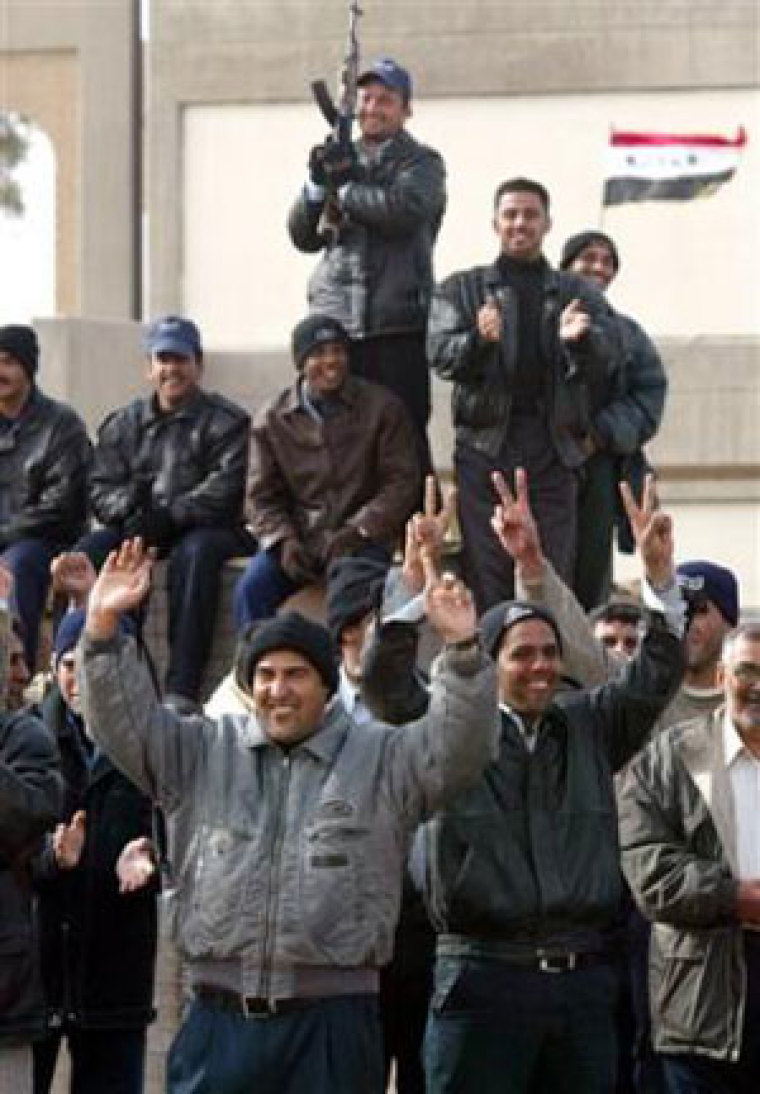
The historical Iraq National Election closed on Sunday 30th January at 5:00pm (1400 GMT). World leaders are impressed by the courage of Iraqis who have stood up for their freedom and cast their ballots despite the threat and violence of terrorist groups. The world has hailed the weekend election as a major step towards a stable government and a victory over terrorism.
According to Iraq's Electoral Commission, the turnout among the estimated 14 million eligible voters appeared higher than the 57 percent that had been predicted, and was around 72 percent. Precise official figures will be confirmed soon.
While coordinated attacks and bombs targeted Christians and churches in Iraq, Iraqi Christians have especially struggled to let their voice be heard in the election. However, under the encouragement of local church leaders and the fervent prayers from Christians across the world, Iraqi Christians were seen flushing into polling stations to cast a vote that could spell out their future.
According to AsiaNews, Monsignor Shlemon Warduni, Chaldean auxiliary bishop in Baghdad said, "I can only thank God for how well the elections are going. Even if forecasts had definitely not been good, there's no lack of tranquillity in the Baghdad community."
The churches in Baghdad, the capital of Iraq, have been ravaged with bombs and abductions since August 2004. Previously a series of attacks on four churches in Baghdad and one in the northern city of Mosul (ancient Nineveh) killed 12 people and injured 61 others. Official figures claim that 15,000 Iraqi Christians have left the country because of the rising tension.
Out of a population of about 26 million, Christians constitute only three percent of people in Iraq. They belong to different denominations and rites such as the Assyrian-Nestorian Church, the Syriac-Catholic Church, the Syriac-Orthodox Church; the Armenian Orthodox Church has some members, the Catholic Church about 260,000, 70% following the Chaldean rite.
The high turnout in the election has reignited the hope of Christians in the democratic future of Iraq. In addition, many Iraqi Christians have expressed their strong faith that prayer can help them get through this period of transformation.
"An intolerable price has been paid with the lives claimed by terrorism in these days," said Bishop Warduni with hope, "nevertheless, the establishment of democracy is the only thing that can stop terrorism in its tracks... It is generally known that only elections can set the stage for stability."
Monsignor Warduni added, "We pray for peace and that elections go smoothly. Ensuring this country's future should be everyone's goal: we can do this by asking God for peace and committing ourselves to building democracy".
Monsignor Djibrail Kassab, Chaldean Archbishop of Basra (southern Iraq), told AsiaNews, "Christians and Muslims are going with their families to the voting stations and, when they got back, many told me that they were happy and optimistic."
"Christians, like all Iraqis, want nothing more than a government, a constitution, and democracy. We pray and continue to hope for democracy, which can only be guaranteed by these elections. As of tomorrow, our hope in peace and stability, so vital to all Iraqis, will be even greater," he added.
Monsignor Rabban Al Qas, Chaldean bishop of Amadiya said to AsiaNews, "Democracy will arrive in full force in Iraq. Today was a first step. Those who want our destruction are foreign fundamentalists and Saddam's mercenaries. We are all optimistic."
"We see voting as the main road to security," Shamoun, a Christian voter from central Baghdad told Associated Press. "We want a strong government and I hope that Iraq will soon be a secure place. We came here to defy the terrorists."
Munira Boulos, a Christian housewife who arrived at the polling station with her son meant "choosing a strong leader who does not differentiate between Iraqis of any religion."
British Prime Minister Tony Blair described the election was "a blow right to the heart of the global terrorism that threatens destruction not just in Iraq but in Britain and virtually every major country around the world."
However, in fact behind the scene of victory, a number of riots have taken place across the country. Suicide bombings and mortar strikes at polling stations killed at least 22 people and wounded dozens.
In addition, Assyrian International News Agency (AINA) reported the Kurdistan Democratic Party (KDP) have deprived thousands of Assyrian Christians in northern Iraq of voting. KDP blocked the delivery of ballot boxes to six major Assyrian towns and villages around Mosul (ancient Nineveh) including Baghdeda, Bartilla, Karemlesh, Shekhan, Ain Sifne and Bahzan.
Looking to a brighter future, Foreign Minister Joschka Fischer of Germany said once a new government is formed, the next move will be to draw up a new Iraqi constitution.
"It is of decisive importance in this to integrate all political, ethnic and religious groups in Iraq," he said in a statement. "Neither violence nor refusing to talk offer a way out of the crisis- at the same time, no part of the population must be excluded from shaping the common fate of all Iraqis."
Iraqi interim Prime Minister Ayad Allawi said in his first news conference since the election, "The terrorists now know that they cannot win." He called on Iraqis to work together toward peace.
Currently, the counting of poll is underway. It could take up around 10 days to announce the final result.